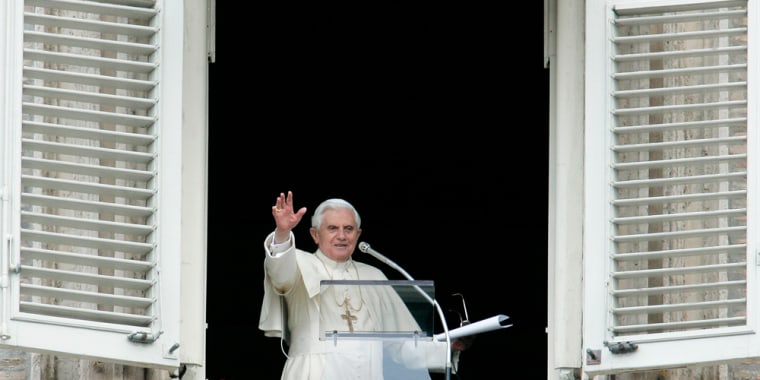Pope Benedict XVI recognizes the damage and pain caused by clergy sex abuse and will seek to heal wounds during his U.S. pilgrimage next week, the Vatican's No. 2 official said Tuesday.
Cardinal Tarcisio Bertone, in an interview with The Associated Press, said Benedict will deliver a message of "trust and hope" when he meets American clergy in St. Patrick's Cathedral in New York.
Benedict "will try to open the path of healing and reconciliation," said Bertone, the Vatican's secretary of state.
"So much suffering for the victims, for the families of the victims and above all to the church because it was a contradiction with the great educational mission of the church," Bertone lamented during the 30-minute interview in the frescoed Treaty Hall of the Apostolic Palace.
The U.S. Conference of Bishops estimates sex abuse-related costs from lawsuits have exceeded $1.5 billion. On Long Island, a grand jury found nearly two dozen cases of sexual abuse going back decades in the Diocese of Rockville Centre, with 1.3 million Catholics in 134 parishes.
A large share of the costs — at least $378 million — has been incurred in just the past three years, when the crisis erupted in the Boston Archdiocese and spread nationwide.
The clergy sex scandals devastated the country, as allegations surfaced from Roman Catholic churches in Boston to Los Angeles. The church considered bankruptcy with the litany of pending lawsuits.
In Los Angeles alone, the Los Angeles Archdiocese agreed to a landmark $660 million settlement for alleged victims of clergy abuse in 2007.
Catholics in Boston had hoped Benedict would visit their city in the wake of the scandal. Bertone said Benedict, who will turn 81 during the April 15-20 trip, is fit but could not meet all the invitations from U.S. cities and had to limit himself to Washington and New York.
"The pope is well, everyone sees it, all those who are near to him see his freshness," Bertone said.
Security a concern
The cardinal says he is aware of threats from Islamic extremists but noted that Benedict visited predominantly Muslim Turkey in 2006 just two months after Benedict touched off a fury in the Islamic world when he linked Islam to violence in a speech in his native Germany.
"I must say the Holy Father is very tranquil and serene .... We have faith in the means of protection the government will implement.
"He entrusts himself to God and also to his guardian angels who won't be lacking on this trip to the United States," Bertone said with a smile.
Bertone worked as a close aide to Cardinal Joseph Ratzinger when the future pope headed the Vatican's office supervising doctrinal orthodoxy. He then served as archbishop of Genoa before Benedict appointed him secretary of state.
He plays a highly visible role in the papacy.
In reference to Cuba
He was in Cuba on a long-scheduled visit when Raul Castro assumed the presidency in February, and their discussions touched on political prisoners in Cuba and Cubans jailed for spying in the United States.
Bertone reiterated the Vatican's long-held position against the U.S. embargo against Cuba and some European Union sanctions.
Bertone, who will be meeting with U.S. Secretary of State Condoleezza Rice in Washington, said the embargo "does not help the positive development of Cuban society; rather, it impedes it."
"The role of the church in Cuba is recognized. I would like to make a positive observation — also comparing to other nations of the world — that Cuba, even under the regime of Fidel Castro, never interfered with the nomination and election of bishops of the Catholic Church."
He did not elaborate on the other nations but might have been referring to China, where the communist government sees the Vatican tradition of the pope naming his own bishops as interference in the country.
